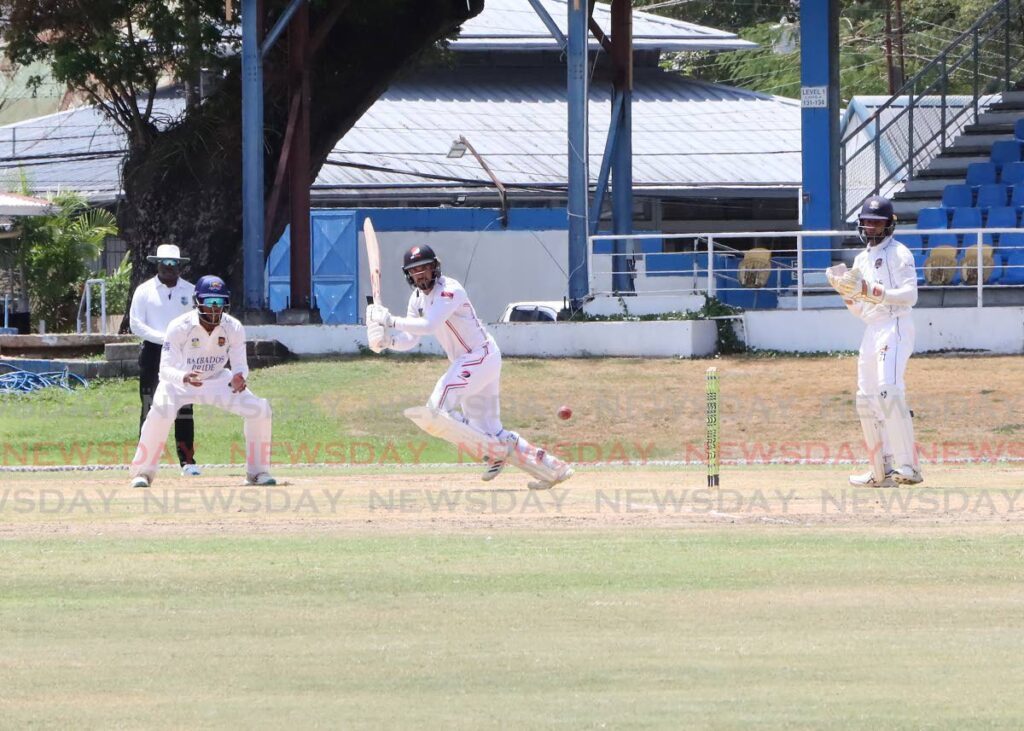Staying on top of the rest

It has been reported that certain Red Force players have been asked to rest. That means they will not be playing in any games until after the Carnival weekend.
Jason Mohammed, Yannic Cariah and Amir Jangoo are all recuperating from “niggles.” Joshua Da Silva, with two centuries, plus Khary Pierre, Jayden Seales and Anderson Phillip, after doing a lot of bowling, were told they needed a rest.
Are these players unfit? And if so, whoever is responsible for the team’s fitness is to blame.
I can’t imagine that a player participates in a four-day game and, regardless of his workload, needs a rest in order to be fit for a game in two-three weeks. What do the fitness experts have to say about this?
The best tonic for a cricketer who is showing good form is to continue playing. If he really loves the game he will want to play all the time, especially when he’s doing well.
A first-class match is a four-day game which is scheduled for two innings per team. One never knows how the game will develop, whether one side will be bowled out for a low score or a huge one, and hence how long a bowler will have to spend in the field or not, or a batsman likewise.
However, one thing is certain and that is, the bowler or batsman will both want to bowl or bat a second time. For instance, if a batsman hasn’t played well in the first innings, then he wants a second bite at the cherry as soon as possible; and if he scores runs, then he can’t wait to get at his opponent’s bowlers a second time.
Similar feelings are in the hearts of the bowlers. Therefore, the players, especially those who are performing effectively, will want to play again as quickly as possible, because their confidence is high and they can’t wait.
So why prevent these players from playing in club matches, as was done last weekend, when they are thirsty for more runs and wickets? The players should have remained active in order to maintain their rhythm while they’re on top and feeling great about their form.

There are so many examples of this type of scenario. I recall a long time ago, in 1961 to be accurate, having a chat with the great Sir Everton Weeke,s who was my boyhood hero. A game was being played at the Queen’s Park Oval between the national team and the visiting Barbados side. Sir Everton was the captain of the visitors, and we were having a chat in the dressing room at the end of the game. This was the customary social get-together at the close of every day’s play in those days.
In reply to my query as to how often one should practise, Sir Everton replied, “As often as possible, once you have the time and the bowlers.”
He told me he used every opportunity he had to practise and play. Then he told me playing in games was the best practice of all.
I played county cricket in England for Glamorgan. For the summer of 1969 we played 24 three-day games, 16 40-over games and a 60-over knockout competition, mostly between May and August.
Glamorgan won the championship that year and only used 13 players.
Every player on that team was superbly fit. One played seven games and another appeared in two. The championship was won undefeated without any unnecessary rest, the confidence from one game boosting the determination for the next. One rested at night.
It was a daily diet of cricket which satisfied the needs of the cricketer who loved the game and was happy to play every day. On days off there were practice sessions. And there would be some free time on selected days, nonetheless well controlled, as sometimes a short break is needed.
I always understood that when not in form one needs to practise; however, there is a danger of being in form and taking things for granted, gradually losing that edge that is necessary to be a winner.
When in form, the player should want to play as if hungry for success. And match practice is the best preparation a player could have.
No great participant in any sport wants to give up an advantage they possess. In cricket, making runs and getting wickets is a fantastic advantage which sustains confidence.

Comments
"Staying on top of the rest"